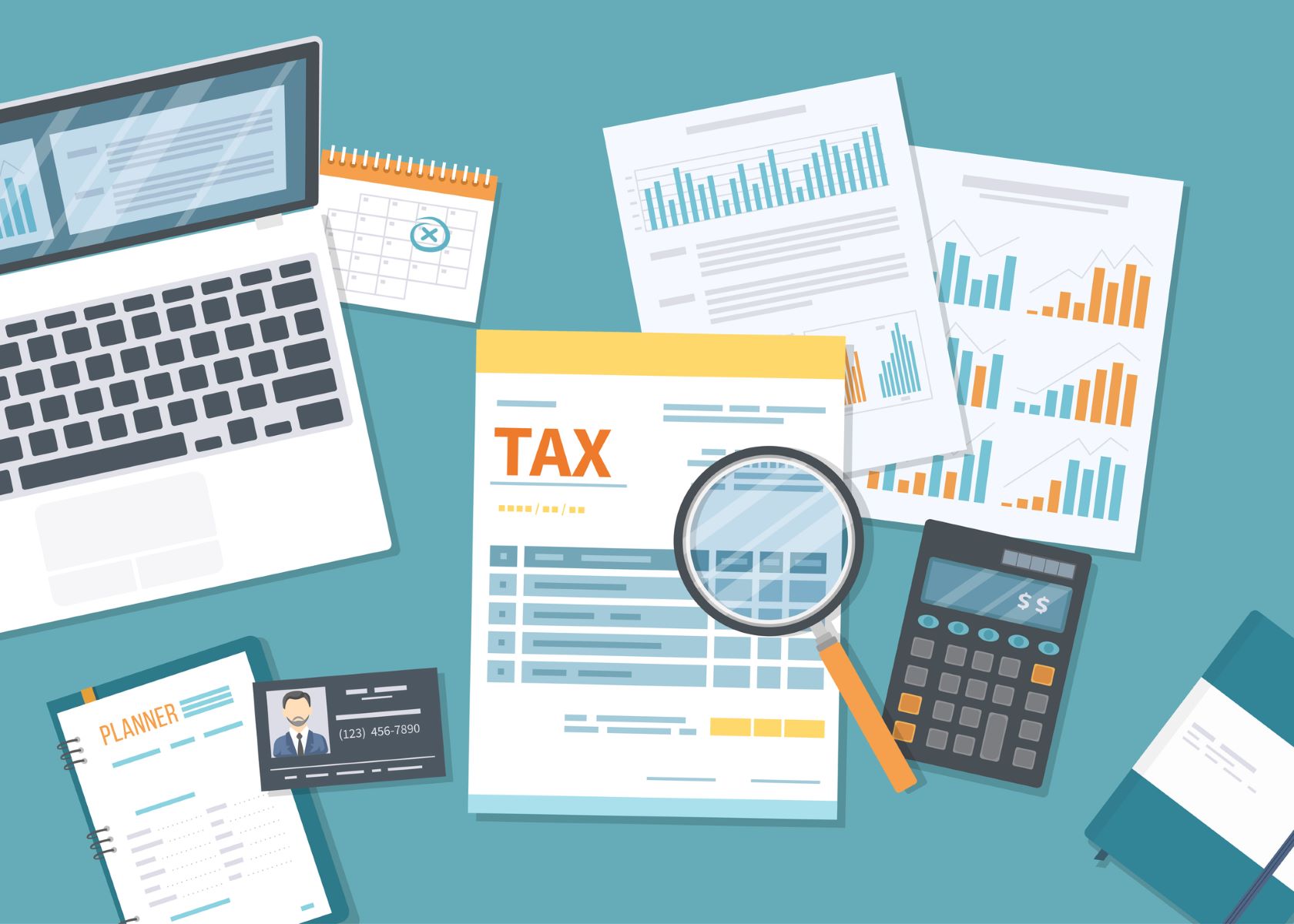

Finance
What Is Payroll Accounting
Published: October 13, 2023
Learn all about payroll accounting in the field of finance and discover its importance in managing employee salaries and tax obligations.
(Many of the links in this article redirect to a specific reviewed product. Your purchase of these products through affiliate links helps to generate commission for LiveWell, at no extra cost. Learn more)
Table of Contents
Introduction
Payroll accounting is a crucial aspect of finance that plays a vital role in managing the financial affairs of a company. It involves the calculation, recording, and reporting of employee compensation, including wages, salaries, bonuses, and deductions. Payroll accounting ensures that employees are paid accurately and on time, and it also helps businesses comply with tax laws and regulations.
In today’s dynamic business environment, organizations need to have efficient payroll accounting systems in place to maintain accurate records and ensure the smooth functioning of their financial operations. Without proper payroll accounting, businesses may encounter severe consequences, such as legal penalties, employee dissatisfaction, and damage to their reputation.
This article will provide an in-depth understanding of payroll accounting, its key components, the process involved, and the challenges faced. We will also discuss the importance of adhering to laws and regulations related to payroll accounting and the benefits of maintaining proper payroll records.
Whether you are a business owner, payroll manager, or finance professional, grasping the fundamentals of payroll accounting is essential for the effective management of your organization’s financial well-being. So, let’s dive in and explore the fascinating world of payroll accounting.
Definition of Payroll Accounting
Payroll accounting refers to the process of calculating and managing employee compensation, including wages, salaries, bonuses, and deductions. It involves keeping track of employee working hours, applying appropriate tax deductions, and ensuring timely and accurate payment to employees.
In simple terms, payroll accounting is the financial record-keeping and reporting related to employee compensation. It provides an organized system for tracking and managing the funds allocated to employee wages and benefits.
At its core, payroll accounting focuses on accurately calculating and recording the financial transactions associated with employee compensation. This includes not only the basic salary or hourly wage but also any additional payments such as overtime, commissions, or bonuses. It involves subtracting deductions such as income taxes, social security contributions, health insurance premiums, and retirement savings.
The primary objective of payroll accounting is to ensure that employees are paid accurately and on time. It involves managing various complexities related to employee compensation calculations, tax withholdings, and compliance with labor laws and regulations.
Payroll accountants play a crucial role in accurately computing the net pay of employees by considering all relevant factors, such as the employee’s tax status, deductions, benefits, and other applicable variables. They have a deep understanding of relevant tax laws and regulations to ensure that the payroll calculations comply with legal requirements.
In essence, payroll accounting serves as the bridge between human resources and finance, ensuring that employees are compensated appropriately while maintaining accurate financial records. It is a vital function for organizations of all sizes and industries, as it directly impacts employee satisfaction, compliance with tax laws, and the overall financial health of the company.
Importance of Payroll Accounting
Payroll accounting plays a crucial role in the financial management of a company and holds significant importance for several reasons:
Accurate Employee Compensation: Payroll accounting ensures that employees receive accurate and timely compensation for their work. This includes calculating wages, salaries, bonuses, and any other applicable payments. Accurate payroll ensures employee satisfaction and helps maintain a positive work environment.
Compliance with Tax Laws and Regulations: Payroll accounting involves calculating and withholding appropriate taxes from employee wages, such as income tax, social security contributions, and Medicare contributions. It also includes reporting tax information to the relevant government agencies. Compliance with tax laws is crucial to avoid penalties and legal issues.
Employee Benefits and Deductions: Payroll accounting is responsible for managing employee benefits and deducting contributions for programs such as health insurance, retirement plans, and employee savings. Accurately tracking and deducting these amounts ensures that employees receive the benefits they are entitled to and helps companies stay compliant with regulations.
Financial Planning and Budgeting: Payroll accounting provides essential financial data that helps organizations plan and budget effectively. It provides insights into labor costs, employee benefits, and other payroll-related expenses. This information is vital for making informed financial decisions and ensuring the financial stability of the company.
Compliance with Labor Laws: Payroll accounting ensures compliance with labor laws and regulations related to employee compensation, such as minimum wage laws, overtime pay, and leave entitlements. Adhering to these laws protects the organization from legal disputes and penalties.
Record-keeping and Audit Purposes: Proper payroll accounting involves maintaining accurate records of employee compensation, tax withholdings, and other payroll-related transactions. These records serve as valuable documentation for audits, legal disputes, and financial reporting purposes. Inaccurate or incomplete payroll records can lead to complications and financial risks.
Employee Trust and Retention: Accurate and timely payroll processing creates trust and confidence among employees. It demonstrates the company’s commitment to fair compensation and adherence to labor laws. When employees trust that they will be paid accurately and on time, it boosts morale and contributes to higher employee retention rates.
In summary, payroll accounting is of utmost importance for ensuring accurate employee compensation, compliance with laws and regulations, effective financial planning, and maintaining trust between employees and the organization. It is a critical function that directly impacts the financial well-being and reputation of a company.
Key Components of Payroll Accounting
Payroll accounting consists of several key components that work together to ensure accurate and efficient processing of employee compensation. These components include:
Employee Information: The foundation of payroll accounting lies in maintaining accurate and up-to-date employee information. This includes the employee’s name, address, Social Security number, tax withholding status, and other relevant details. Employee information serves as the basis for calculating wages, deductions, and benefits.
Timekeeping and Attendance: Timekeeping and attendance tracking is essential for accurately determining the hours worked by employees. This component involves recording and monitoring employee work hours, including regular working hours, overtime, and any leave taken. Accurate timekeeping ensures that employees are paid accurately for their hours worked.
Wage Calculation: Wage calculation is a critical component of payroll accounting. It involves determining the gross wages owed to employees based on their hourly rate, salary, or commission. Wage calculations must take into account various factors such as overtime, shift differentials, and other applicable payments.
Tax Withholdings: Calculating and withholding the correct amount of taxes from employee wages is a crucial component of payroll accounting. This includes federal, state, and local taxes, as well as Social Security and Medicare contributions. Compliance with tax laws and accurate tax withholding is vital to avoid penalties and legal issues.
Deductions and Benefits: Deductions and benefits are essential to employee compensation. Payroll accounting ensures the timely and accurate deduction of employee contributions for benefits such as health insurance, retirement plans, and employee savings. It also includes deductions for items like wage garnishments, child support payments, and loan repayments.
Payroll Processing: Once all the necessary calculations and deductions have been made, payroll processing involves generating paychecks or direct deposits for employees. This component ensures that employees are paid correctly and on time, considering factors such as pay frequency and any additional payments like bonuses or commissions.
Reporting and Compliance: Payroll accounting requires generating various reports related to employee compensation, tax withholdings, and other payroll-related expenses. These reports are crucial for compliance with labor laws and tax regulations. They also provide valuable information for financial reporting purposes, audits, and other internal controls.
Record-Keeping: Proper record-keeping is a vital component of payroll accounting. It involves maintaining accurate and organized records of all payroll-related transactions, including employee information, timekeeping records, wage calculations, tax withholdings, and benefit deductions. Good record-keeping ensures transparency, easy retrieval of information, and compliance with audit requirements.
By effectively managing these key components, payroll accounting ensures the accurate calculation and timely processing of employee compensation while maintaining compliance with tax laws, labor regulations, and other financial requirements.
Process of Payroll Accounting
The process of payroll accounting involves a series of steps to accurately calculate and process employee compensation. While the specific steps may vary depending on the organization’s payroll system, the general process typically includes the following:
1. Collecting Employee Information: The process begins by collecting and verifying relevant employee information, including personal details, tax withholding forms, and any changes in employee status or benefits. This information serves as the basis for accurate payroll calculations.
2. Tracking Time and Attendance: Timekeeping systems are used to track employee work hours, including regular hours, overtime, and any leave taken. This information is essential for accurately calculating wages and determining any applicable overtime rates.
3. Calculating Gross Pay: Using the employee’s hourly rate, salary, or commission information, along with the recorded work hours, the payroll system calculates the gross pay owed to each employee. This includes any additional payments such as bonuses or commissions.
4. Deductions and Withholdings: Payroll accountants calculate and deduct taxes, such as income tax, Social Security, and Medicare withholdings, from the employee’s gross pay. They also deduct contributions for employee benefits, such as health insurance and retirement plans. Other deductions, such as wage garnishments or child support payments, are also taken into consideration.
5. Net Pay Calculation: The net pay is calculated by subtracting the applicable deductions and withholdings from the employee’s gross pay. The net pay is the amount that the employee will receive after all deductions have been taken into account.
6. Payroll Processing: Once the net pay has been calculated for each employee, the payroll is processed. This involves generating paychecks or setting up direct deposits for employees, ensuring that the correct amount is paid to each employee on the designated pay date.
7. Payroll Reporting: After processing payroll, various reports are generated for record-keeping, compliance, and financial reporting purposes. These reports include payroll registers, tax reports, and other relevant documents required for audits or internal controls.
8. Compliance and Tax Filings: Payroll accounting also involves complying with tax laws and regulations. This includes submitting tax withholdings and other required payroll-related filings to the appropriate government agencies within the specified deadlines.
9. Record-Keeping: Throughout the process, it is essential to maintain accurate and organized records of payroll-related transactions, including employee information, timekeeping records, wage calculations, tax withholdings, and benefit deductions. These records should be securely stored for future reference, audits, or legal compliance.
Effective payroll accounting requires attention to detail, accuracy, and compliance with relevant laws and regulations. A well-designed payroll system and proper documentation help streamline the process and ensure that all employees are paid accurately and on time.
Laws and Regulations related to Payroll Accounting
Payroll accounting is subject to various laws and regulations that businesses must adhere to. Compliance with these laws is essential to ensure fair treatment of employees, accurate taxation, and avoidance of legal issues. Some of the key laws and regulations related to payroll accounting include:
1. Fair Labor Standards Act (FLSA): The FLSA establishes minimum wage, overtime pay, and child labor standards. It requires employers to pay non-exempt employees at least the federal minimum wage and overtime pay for hours worked beyond 40 hours in a workweek. Employers must meticulously track work hours and apply the appropriate wage rates to ensure compliance.
2. Internal Revenue Code (IRC): The IRC governs federal income tax withholding requirements for employees. It outlines the rules and tax rates to calculate and withhold federal income tax from employees’ wages. Employers must accurately calculate and remit the withheld taxes to the Internal Revenue Service (IRS) on a regular basis.
3. Social Security Act: The Social Security Act establishes the Social Security program, which provides benefits to retired and disabled workers and their dependents. Employers must withhold Social Security taxes from employees’ wages and remit both the employee and employer portions to the appropriate government agency.
4. Medicare: Medicare is a federal health insurance program primarily for individuals aged 65 and older, as well as certain disabled individuals. Employers are required to withhold Medicare taxes from employees’ wages and contribute the employer portion. These funds are used to finance the Medicare program.
5. State and Local Employment Laws: Apart from federal laws, each state and locality may have its own specific employment laws that businesses must comply with. These laws may include minimum wage rates, paid leave requirements, overtime thresholds, and other provisions. Employers must ensure compliance with all applicable state and local laws to avoid legal consequences.
6. Employee Retirement Income Security Act (ERISA): ERISA establishes rules and standards for employee benefit plans, including retirement plans, such as 401(k) plans and pension plans. It requires employers to provide certain disclosures to employees, maintain accurate records, and meet fiduciary responsibilities related to managing employee benefit plans.
7. Family and Medical Leave Act (FMLA): FMLA provides eligible employees with job-protected leave for specific medical and family-related reasons. Employers covered by FMLA must provide unpaid leave and maintain the employee’s health benefits during the leave period. They must also ensure proper documentation and compliance with the Act’s provisions.
8. Wage Garnishment Laws: Wage garnishment laws vary by jurisdiction and govern the process of deducting an employee’s wages to satisfy a debt or court-ordered payment. Employers must comply with wage garnishment orders, withhold the appropriate amount, and distribute the funds to the appropriate entity as required by law.
9. Tax Reporting and Filing Requirements: Employers have reporting and filing requirements related to payroll taxes. These include filing quarterly federal tax returns (Form 941) and annual wage and tax statements (Form W-2) for each employee, reporting wages, withheld taxes, and other relevant information to the IRS, Social Security Administration, and state tax agencies.
Compliance with these laws and regulations is essential for businesses to avoid legal penalties, maintain employee trust, and ensure accurate financial management. It is crucial for employers to keep up-to-date with any changes in laws and regulations to ensure ongoing compliance with payroll accounting requirements.
Challenges in Payroll Accounting
Payroll accounting can be a complex and challenging process due to various factors and considerations. The following are some common challenges faced in payroll accounting:
1. Changing Payroll Regulations: Payroll regulations are subject to frequent changes at the federal, state, and local levels. Staying updated with the latest regulations and ensuring compliance can be a challenge for payroll accountants. Failure to comply with changing regulations can result in penalties and legal consequences.
2. Tax Calculation and Withholding: Calculating and withholding the correct amount of taxes from employee wages can be challenging. The tax landscape is intricate, with different tax brackets, deductions, credits, and allowances to consider. Ensuring accurate tax calculations and keeping up with tax law changes is critical to avoid underpaying or overpaying taxes.
3. Payroll Errors: Mistakes in data entry, miscalculations, or inaccuracies in employee information can lead to errors in payroll accounting. These errors can result in incorrect payment amounts, incorrect tax withholdings, or delayed payments, which can negatively impact employee morale and compliance with regulations.
4. Handling Payroll for Multiple Locations and Jurisdictions: For businesses operating in multiple locations, payroll accounting becomes more complex due to differing payroll laws, tax rates, and regulations in each jurisdiction. Tracking and managing payroll for employees across various locations require careful record-keeping and knowledge of local employment laws.
5. Benefits and Deductions Management: Managing employee benefits and deductions can be challenging due to the variety of benefit options available and the changing needs of employees. Administering benefits such as retirement plans, health insurance, and flexible spending accounts requires accurate tracking and coordination with multiple stakeholders.
6. Compliance with Overtime and Wage Laws: Compliance with overtime and wage laws, such as the Fair Labor Standards Act (FLSA), can be complex. Tracking and calculating overtime hours, applying the correct rates, and ensuring appropriate pay for non-exempt employees require careful attention to detail and a solid understanding of wage laws.
7. Employee Classification: Properly classifying employees as exempt or non-exempt and distinguishing between employees and independent contractors is crucial for compliance with employment laws. Misclassifying employees can lead to legal consequences and costly audits.
8. Technology and System Integration: Implementing and managing payroll software and integrating it with other HR and financial systems can be a challenge. Adequate training, system updates, and troubleshooting are essential to ensure accurate and efficient payroll processing.
9. Data Security and Confidentiality: Payroll accounting involves dealing with sensitive employee information, such as Social Security numbers and bank account details. Protecting this data from unauthorized access and ensuring compliance with data privacy laws is a significant challenge.
Overcoming these challenges requires employing knowledgeable payroll professionals, staying updated with changing regulations, investing in robust payroll systems, and cultivating a culture of accuracy and attention to detail within the organization.
Benefits of Proper Payroll Accounting
Implementing and maintaining proper payroll accounting practices offers numerous benefits to businesses. Let’s explore some of the key advantages:
1. Accurate Employee Compensation: Proper payroll accounting ensures that employees are paid accurately and on time. This fosters trust and employee satisfaction, leading to a positive work environment and higher employee retention rates.
2. Compliance with Tax Laws and Regulations: Adhering to tax laws and regulations is essential to avoid penalties and legal consequences. Proper payroll accounting ensures accurate tax calculations, withholdings, and timely remittances, keeping the business in good standing with tax authorities.
3. Reduces the Risk of Audit Issues: Accurate payroll accounting reduces the risk of errors and miscalculations, minimizing the likelihood of audits or disputes with tax authorities. Proper documentation and adherence to regulations make audits smoother and less disruptive for the business.
4. Efficient Financial Planning and Budgeting: Reliable payroll accounting provides businesses with precise data on labor costs, employee benefits, and other payroll-related expenses. This information aids in accurate financial planning, budgeting, and forecasting, enabling better decision-making and resource allocation.
5. Streamlined Human Resources Management: Proper payroll accounting simplifies human resources management by ensuring accurate employee records and seamless integration with other HR processes. This includes tracking employee attendance, managing benefits, and supporting employee performance evaluations.
6. Improved Compliance with Labor Laws: Effective payroll accounting ensures compliance with labor laws, such as minimum wage requirements, overtime pay, and leave entitlements. This helps businesses avoid legal issues, penalties, and reputation damage associated with noncompliance.
7. Enhanced Data Security and Confidentiality: Proper payroll accounting involves safeguarding sensitive employee data. Implementing robust data security measures protects employee information from unauthorized access and ensures compliance with data privacy laws.
8. Facilitates Employee Self-Service: Modern payroll accounting systems often offer self-service portals, allowing employees to access their pay stubs, tax documents, and update personal information. This empowers employees, reduces administrative burdens, and improves overall communication within the organization.
9. Efficient Payroll Processing: Proper payroll accounting streamlines the entire payroll process, reducing manual errors, and ensuring timely and accurate payments to employees. This frees up time for payroll professionals to focus on value-added tasks and increases overall efficiency in HR and finance departments.
10. Maintains Organizational Repute: Accurate and reliable payroll accounting helps businesses maintain a positive reputation both internally and externally. It demonstrates professionalism, fairness, and commitment to employee well-being, which can positively impact relations with employees, stakeholders, and the general public.
In summary, proper payroll accounting not only ensures compliance with regulations but also fosters employee satisfaction, supports financial planning, and contributes to the overall success of businesses. By investing in accurate payroll accounting practices, organizations can mitigate risks, optimize processes, and create a foundation for long-term success.
Conclusion
Payroll accounting is a crucial aspect of financial management in any organization. It involves the accurate calculation, recording, and processing of employee compensation, ensuring compliance with tax laws and labor regulations. Proper payroll accounting plays a vital role in maintaining employee satisfaction, financial stability, and legal compliance.
Throughout this article, we have explored the definition of payroll accounting, its importance, key components, and the process involved. We have also discussed the laws and regulations that businesses must adhere to and the challenges they may face in payroll accounting. Additionally, we highlighted the benefits of proper payroll accounting, including accurate employee compensation, compliance with tax laws, efficient financial planning, and streamlined HR management.
It is essential for businesses to recognize the significance of investing in proper payroll accounting practices. By ensuring accurate calculations, staying updated with regulations, implementing robust systems, and maintaining diligent record-keeping, businesses can mitigate risks, enhance employee satisfaction, and effectively manage their financial affairs.
In an ever-changing regulatory landscape, businesses should continuously educate themselves on payroll accounting practices and stay up-to-date with legal requirements. By doing so, they can navigate potential challenges, such as changing regulations, complex tax calculations, and employee benefit management, with ease and confidence.
In conclusion, payroll accounting is a critical function that extends beyond just processing paychecks. It serves as the foundation for accurate financial management, promotes employee trust and satisfaction, and ensures compliance with legal obligations. Investing in proper payroll accounting practices allows organizations to focus on their core activities, protect their reputation, and contribute to their long-term success.














